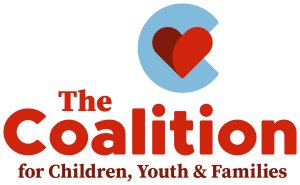This page includes resources, information, and links to help support you and your family. If you have additional questions or would like to speak with a member of our team, please give us a call at 800-762-8063.
Tip Sheets
Caring for a Child Whose Parent Is in Jail or Prison: Imagine having a resource that equips you to navigate the unique challenges faced by children with parents in jail or prison. This tip sheet sheds light on this critical topic, providing practical advice, insights, and strategies.
Caring for a Child Whose Sibling(s) Live Elsewhere: Navigating the complexities of fostering a child separated from their siblings? This essential guide offers practical tips and emotional support to help you maintain and strengthen sibling bonds. Learn how to facilitate meaningful connections, recognize signs of grief, and advocate for safe visitations. With expert advice and real-life strategies, this resource is a must-read for foster parents dedicated to supporting sibling relationships.
Caring for Children & Youth With Fetal Alcohol Spectrum Disorder: This tip sheet provides essential information for caregivers of children and youth with Fetal Alcohol Spectrum Disorder (FASD). It explains the various types of FASD and the challenges these children may face and offers practical strategies for creating a supportive environment and managing behaviors effectively.
Caring for Children & Youth With Special Healthcare Needs: Caring for a child with special healthcare needs can be incredibly rewarding and challenging. This comprehensive tip sheet offers essential guidance to help you navigate healthcare systems, access valuable resources, and provide the best support for the child in your care. Download to better understand and meet a child’s unique healthcare needs, find tips on building a strong partnership with healthcare providers, and learn how to effectively advocate for a child’s health and well-being.
Caring for Children Under Five: The early years of a child’s life are critical for brain development and emotional growth. This tip sheet offers essential insights and tips for caregivers supporting children under five, especially those who have experienced early trauma. Learn more about what to expect when caring for a young child with a trauma background, how to help a child build secure attachment and trust, and practical preparation steps to create a stable, nurturing environment.
Celebrating the Holidays With the Children You Foster: The holiday season can be a challenging time for children in foster care, but with thoughtful planning, it can also be a time of healing and joy. This tip sheet offers invaluable advice on co-parenting during the holidays, recognizing and responding to grief, preparing for family gatherings, and building a sense of belonging.
Communicating About Kids in Care: Understanding Stigmas and Stereotypes: Have you ever wondered about the real stories behind the stereotypes of children in foster care and adoption? Our tip sheet dives into challenging misconceptions and supporting incredible kids. Learn more about how you can help reshape narratives and create a supportive community where every child can thrive.
Foster Care, Grief & Loss: This tip sheet provides an in-depth look at the complex emotions associated with foster care, including the grief and loss experienced by foster parents, birth parents, and children. Explore the different stages of grief and learn about the personal journey that varies from person to person. The tip sheet offers insights into the symptoms of grief, such as difficulty sleeping, irritability, and loss of appetite, among others. Gain practical advice on coping with loss and the importance of patience, compassion, and open communication, and learn about signs of recovery.
Fostering Older Youth: This comprehensive tip sheet delves into the unique challenges and incredible rewards of fostering teens and older youth. Discover how you can provide hope and stability to teens navigating the complexities of foster care. Learn about the developmental needs of older youth and how you can support their journey toward independence and adulthood. With practical advice, real-life stories, and a wealth of resources, this guide is a must-read for anyone considering fostering older youth.
Foster Parents & Social Workers: Allies and Advocates for Youth in Care: Discover how foster parents and social workers can work together to ensure the best outcomes for youth in care. This tip sheet includes practical tips and insights to help you create a supportive and effective partnership.
Helping Children and Youth in Care Achieve School Success: Are you a foster parent wondering how to set the child in your care up for academic triumph? Look no further! This is your ultimate guide to navigating the unique challenges of school life for children in foster care. From dealing with confidentiality concerns to creating the perfect homework space, this comprehensive resource is packed with practical advice for foster parents and child welfare professionals alike.
Helping Children in Care Build Trusting Relationships: Trust is a fundamental aspect of healthy relationships. Building trust can be particularly challenging for children in foster care due to their traumatic experiences and multiple losses. This tip sheet provides information on common factors impacting trust and tips to help children and youth build trustworthy relationships. Also included is a list of resources, including DVDs, videos, and training materials, to help caregivers better understand and support children in their care.
Helping Kids in Care Change Schools: Navigating school changes for children in care can be challenging. This tip sheet will help you prepare for school registration, support your child’s emotional needs, work effectively with teachers, and advocate for a child’s education. Whether you’re new to fostering or experienced, this guide provides valuable insights to ensure the best educational outcomes for children in your care.
Helping Teens in Care Transition to Adulthood: Preparing teens for adulthood is challenging, and it’s even more complex for youth in foster care. This tip sheet offers foster parents and caregivers guidance to help teens build the life skills, confidence, and support networks they need to thrive. In this resource, you’ll learn essential life skills teens need for independence, practical tips for teaching budgeting, job skills, and more, and how to celebrate successes and support challenges along the way.
The Importance of Documentation: Are you a foster parent or caregiver looking to make a real difference in a child’s life? This tip sheet is your essential toolkit for understanding and mastering the art of record-keeping. Discover how your observations can shape therapeutic plans, influence court decisions, and ensure the best outcomes for children in care.
Learning to Let Go: Coping With Reunification Anxiety: Reunification is the primary goal in foster care, but saying goodbye isn’t easy. This tip sheet dives into the complex emotions foster parents may feel as a child prepares to reunite with their birth family. Explore reunification anxiety and learn healthy ways to cope with the challenges it brings.
Preparing the Kids in Your Home for Fostering: Are you considering fostering and wondering how to prepare your children for this new journey? This resource is designed to help parents navigate the emotional and practical aspects of bringing a child in foster care into a home with biological children. Whether you’re just starting to consider fostering or are already on the path, this guide is your trusted companion.
Respecting the Confidentiality of Children in Care and Their Families: To maintain confidentiality, Wisconsin has laws to protect the private information of children and families involved in the child welfare system. This tip sheet provides crucial guidance for foster parents on maintaining that confidentiality. Readers will understand the legal requirements for maintaining confidentiality in foster care, learn how respecting confidentiality helps build trust with foster children and their families, gain actionable tips for handling common situations where confidentiality might be challenged, recognize the potential impacts of breaching confidentiality on your foster care license and placements, and discover effective ways to discuss foster care without compromising confidentiality.
Setting Healthy Boundaries in a Co-Parenting Relationship: Boundaries are essential in any relationship, between parents and children, friends, employers and employees, and certainly between foster and birth families. This tip sheet includes practical guidance for parents, foster parents, and caregivers navigating the complexities of co-parenting. It emphasizes the importance of establishing clear, compassionate boundaries to support respectful relationships and ensure the well-being of the child involved. Through real-life examples and thoughtful questions, it encourages open dialogue and mutual respect among all caregivers, ultimately fostering a more stable and supportive environment for the child.
Supporting Kids From Families Affected by Drugs: A comprehensive guide for foster parents and kinship caregivers supporting children from families affected by substance use disorder (SUD). Learn to recognize common emotional and behavioral responses, like hypervigilance and trauma reactions, and discover practical strategies for creating felt safety, building trust, and supporting healing. Includes guidance on maintaining respectful relationships with birth parents and extensive resources for ongoing support.
Supporting LGBTQIA+ Youth in Your Care: Discover essential insights and practical tips to create a safe, supportive environment for LGBTQIA+ youth in out-of-home care. Learn from real experiences and expert advice on fostering inclusivity, understanding, and resilience.
Supporting Teens Leaving Care: Resources & Guidance for Foster Parents: Transitioning from foster care to independent living is a significant milestone for teens, filled with both excitement and challenges. This tip sheet provides foster parents with essential resources and guidance to support teens through this critical phase. Reflecting on the journey from adolescence to adulthood, this tip sheet emphasizes the importance of early preparation and continuous support. It covers various aspects of independent living, including housing, finances, employment, transportation, education, and wellness.
Supporting the Social-Emotional Learning and Development of Children in Your Care: Are you wondering why little Naomi struggles to make friends or why Tyson’s table manners are a work in progress? Dive into this eye-opening guide on supporting social-emotional learning and development in children under your care. Discover the hidden impacts of trauma on a child’s social skills, how to decode a child’s behavior through careful observation, practical strategies to enhance social interactions and emotional intelligence, and the crucial role of culture and developmental stages in social-emotional growth. From understanding nonverbal cues to practicing dinner table etiquette, this comprehensive resource offers a wealth of actionable tips for caregivers, foster parents, and child welfare professionals.
Ten Tips to Survive an Allegation: As a foster parent, your heart is in the right place. You’ve made a commitment to care for children and their families, and that is invaluable. But what happens when an unexpected allegation threatens to upend everything? This tip sheet tackles this challenging scenario head-on. Drawing from real experiences, it offers a lifeline to foster parents facing one of their most difficult moments.
Under the Microscope: Dealing With Maltreatment Allegations: If you’re a foster parent, adoptive parent, or relative caregiver, navigating the complexities of child welfare can be challenging. This article offers invaluable insights and practical tips to help you minimize the risk of maltreatment allegations and effectively manage the investigation process if one arises. By reading this, you’ll gain confidence and knowledge to better protect and support the children in your care.
Ways to Help Children and Youth in Care: This informative tip sheet outlines various ways individuals can support children and youth in the foster care system, even if they’re not able to become foster parents themselves. It highlights the ongoing need for support and addresses topics including mentoring opportunities, recruiting potential foster parents, providing respite care, community volunteerism, volunteer driving programs, and donations of goods and services. Small acts of kindness can have a significant impact on the lives of vulnerable children and their families.
What Grief Looks Like for Children and Youth in Foster Care: This comprehensive guide offers insights into the complex emotions that children in foster care experience and provides practical advice for caregivers on how to support them. Whether you’re a foster parent, a teacher, or a friend, this resource can help you better understand and assist the children in your life.
Wisconsin Family Support Groups & Support Associations
This comprehensive directory of family support groups and associations in Wisconsin is organized by both statewide and regional options, as well as online resources.
Wisconsin Foster Closets
Foster closets are community-based resources that provide free or low-cost clothing, supplies, and other essential items for children and families involved in the foster care system. Click here to download a list of foster closets around the state of Wisconsin that are open for families to use and that accept donations from community members.
Wisconsin Foster Family Handbook
The Wisconsin Foster Family Handbook is a comprehensive guide that provides essential information about foster care in Wisconsin. It is written specifically for new foster families but can also serve as a good source of information for experienced foster parents, as well.
In the Handbook, you will find:
- An overview of the foster care program
- Information about your role and the expectations of foster parents
- A discussion about the care of children in foster care
- Information about the critical nature of working with birth families
- Information about the crucial importance of self-care as a foster family
- Tools and resource lists about a variety of specific topics
Find Hope & Inspiration
The No Matter What Families YouTube channel is created and maintained by the Coalition for Children, Youth & Families. It is designed to encourage families to seek help and support when they feel hopeless and alone. The YouTube channel features video stories from real people, ultimately providing inspiration to help struggling families make connections that will help build their strength and resilience.



